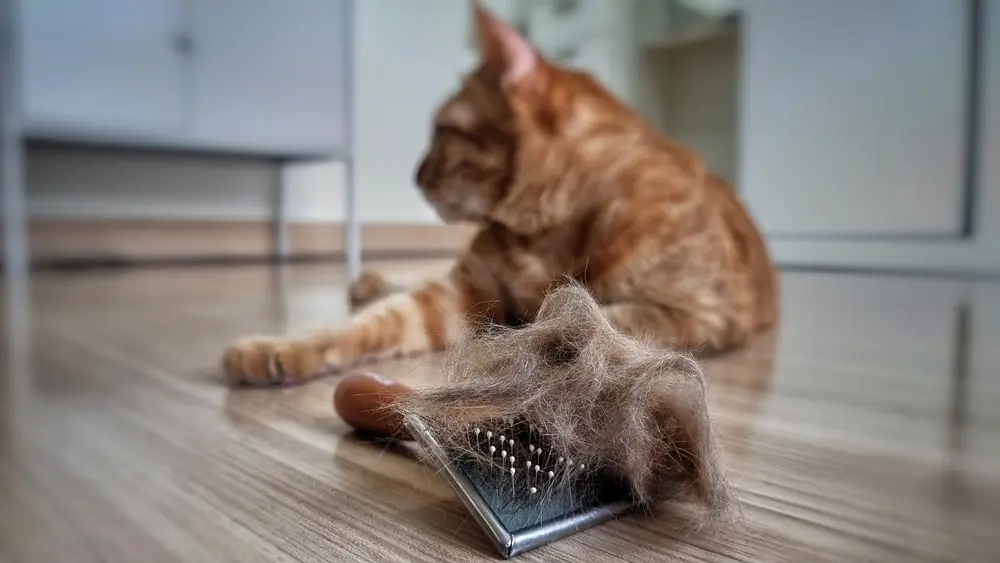PET CALENDAR
Hairball Awareness Day
As far as obscure holidays go, there’s really not a more important one for your cat than Hairball Awareness Day, typically celebrated on the last Friday in April. Let’s take a look a closer look at hairballs. . . metaphorically.
How to Cats Get Hairballs?
First, let’s talk about how cats get hairballs. If you’ve ever been on the receiving end of a rare kitty kiss, you probably know that your cat’s tongue is covered in rough, hook-shaped structures that aid in eating, drinking, and, of course, grooming.
These hooks catch loose and dead fur during the grooming process, which your cat then swallows. Most of this fur passes through the digestive tract easily, but over time, hair can accumulate in the stomach and create the unpleasant surprise we all know as a hairball.
Is my Cat Susceptible to Hairballs?
Cats with inflammatory bowel disease or other digestive illnesses are particularly susceptible to hairballs, as are long-haired breeds such as Persians or Maine Coons. Although usually harmless, hairballs can interfere with your cat’s digestive system, causing vomiting, gagging, or retching in an attempt to eliminate the unwelcome passenger hitching a ride in kitty’s belly.
They can also case lack of appetite, lethargy, and constipation or diarrhea. In extreme cases, hairballs can cause blockages in the stomach, intestine, or colon that require surgery to remedy.
How to Treat Hairballs
The best way to treat hairballs is to prevent them before they form, and the easiest way to do this is to keep your cat well-groomed. Brush your cat (especially long-haired breeds) daily with a slicker brush, and consider a special de-shedding comb like the Furminator or similar products to remove loose undercoat fur that can contribute to mats as well as hairballs.
If your cat seems to have hairballs despite daily brushing, consider providing a hairball-remedy diet. There are several on the market, so consult your veterinarian to discuss the best options for your cat’s particular needs. Additionally, if your cat is struggling with retching or gagging in attempts at hairball elimination, you may administer a hairball jelly, which acts as a mild laxative to help get the hairball moving through kitty’s digestive tract.
With a little prevention and quick treatment, you can help keep your cat free of the scourge of hairballs. If your cat doesn’t seem to respond to these remedies, or if she seems to have very frequent hairball problems, consult your vet for further guidance. Worried about hefty vet bills?
Consider Investing in Pet Insurance
Looking for more ways to keep your pets happy and healthy? Consider investing in a pet insurance policy with MetLife Pet Insurance.1 Get your free quote today.

